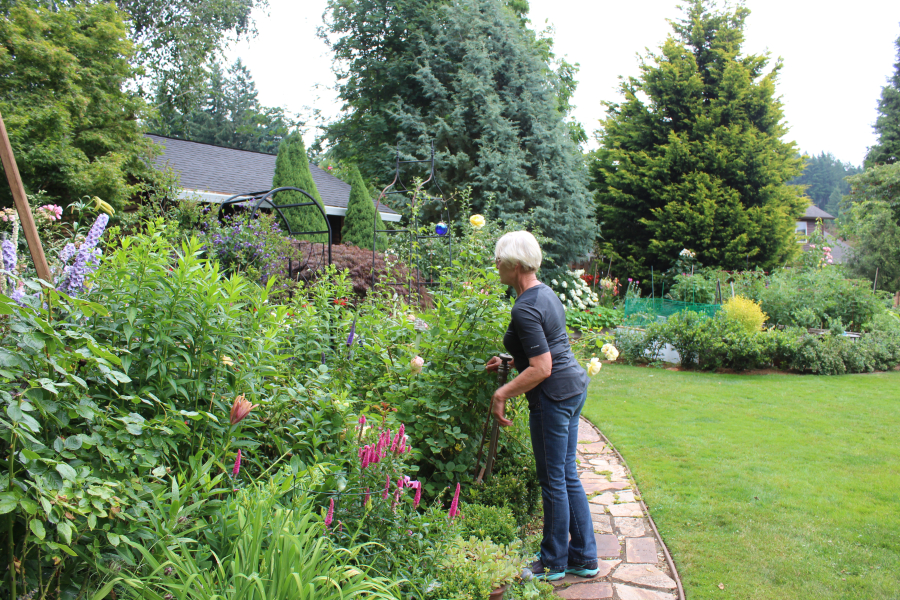Camas resident Marian Neumann is walking through her lush backyard garden, examining flowers and bushes for bees.
“This area should be thick with (bees) right now,” Neumann says, waving toward a few brilliant purple blooms in her garden. “But I see few honey bees and now the bumbles are gone. Since our own garden depends on bumblebees, I am very concerned.”




